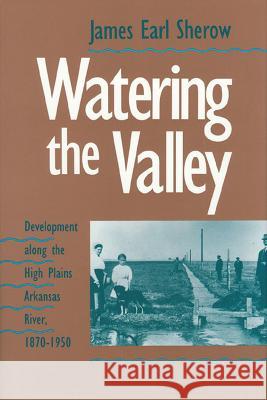Watering the Valley: Development Along the High Plains Arkansas River, 1870-1950 » książka
Watering the Valley: Development Along the High Plains Arkansas River, 1870-1950
ISBN-13: 9780700604401 / Angielski / Twarda / 1991 / 240 str.
James Earl Sherow contends that a vast network of problems in the arid West has sprung from the mistaken notion that water is a commodity to be bought, sold, and traded. This ill-conceived approach to water development, he argues, has resulted in social problems as well as abuse of the environment. In this volume he tells the story of the inhabitants of the "Valley of Content," the High Plains section of the Arkansas River Valley, during the formative period of settlement and development. It was their desire for growth, he maintains, that spurred the construction of the very dams, reservoirs, and water conveyance structures that would ultimately undermine their success. He documents their attempts--both fanciful and fruitful--to bring the river under their control, the waves of new problems that followed each new 'solution, ' and the conflict and cooperation the process engendered.
"This is a most important book. Sherow's thesis is compelling. He provides a definitive study for the period, . . . examining water use affecting agriculture, industry, and urban areas in Colorado and agriculture in Kansas. This book will be worthy of a place beside Don Pisani's From the Family Farm to Agribusiness: The Irrigation Crusade in California and the West, 1850-1930 and Norris Hundley's Water in California. It adds an important new dimension to the discussion of water in the West, a topic that is no longer one of merely regional concern."--Richard Lowitt, author of The New Deal and the West










